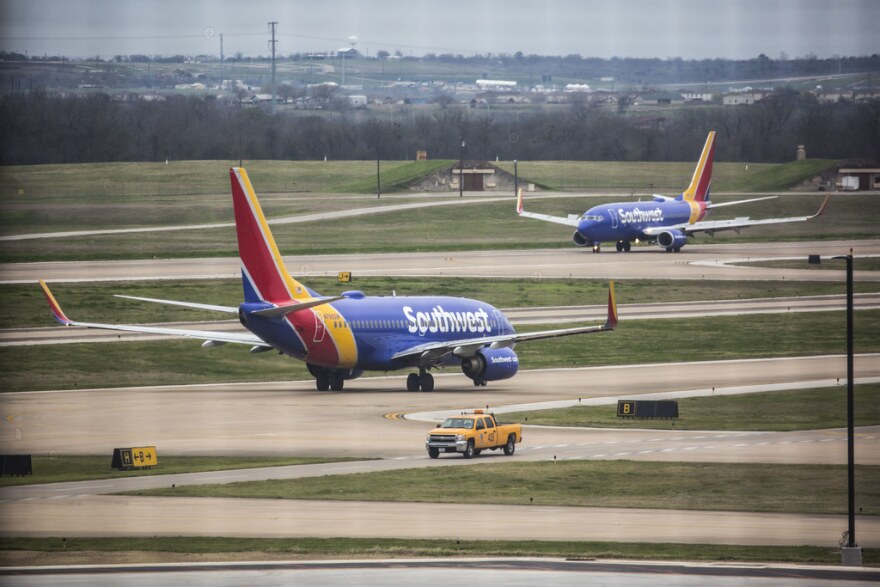Airline capacity is slowly being added at Austin-Bergstrom International Airport, but it's still far below normal. That means it may be awhile before the airport's finances recover to pre-pandemic levels.
According to reports filed with the Austin Airport Advisory Commission ahead of a meeting Friday, passenger seats are down by about half in August over the same time in 2019. But early projections show capacity could be down by only 4% by October. Those numbers are subject to change, as airlines continue to adjust their schedules.
Low-cost carriers have restored service faster than the three main legacy carriers – American, Delta and United. Southwest now holds a 43% share of passenger seats at the airport, compared to a projected 32% before the pandemic. American is holding steady at 17%, and is restoring flights faster than United and Delta, which both saw declines in passenger share.
All international flights have been suspended until further notice, either by travel restrictions or by depressed demand. But, for now, most domestic destinations have been maintained.
While passenger travel has increased from lows in April, preliminary figures show it is still down at least 70% year to year in August. As of the last full report from June, the decline was 80%.
The passenger decline has had a stark impact on finances. Revenues were down by 52% in June, driven by drops in areas like parking, as well as food, beverage and retail concessions. The airport is continuing to work with vendors and partners on financial relief, such as reduced fee payments, but Executive Director Jacqueline Yaft said in a memo to the commission that the help might be more difficult to manage in the months to come.
“AUS has been and will continue to institute procedures and protocols to compassionately and legally support our struggling local and non-local aviation business partners, where possible,” she wrote. “As set forth in our financial report, June 2020 numbers reflect passenger traffic remains down over 80%, and the financial challenges at the airport are broad and impact all tenants and partners, airport operations, airport payroll, debt service and more.”
The airport was granted more than $58.7 million from the federal CARES Act, but that can be used only for operating expenses and to pay down debt.
The airport has paused work on its expansion, but plans to move forward with other improvements that already have funding.
Got a tip? Email Samuel King at samuel@kut.org. Follow him @SamuelKingNews.
If you found the reporting above valuable, please consider making a donation to support it. Your gift pays for everything you find on KUT.org. Thanks for donating today.
Copyright 2020 KUT 90.5. To see more, visit . 9(MDAwMTM1NDgzMDEyMzg2MDcwMzJjODJiYQ004))

